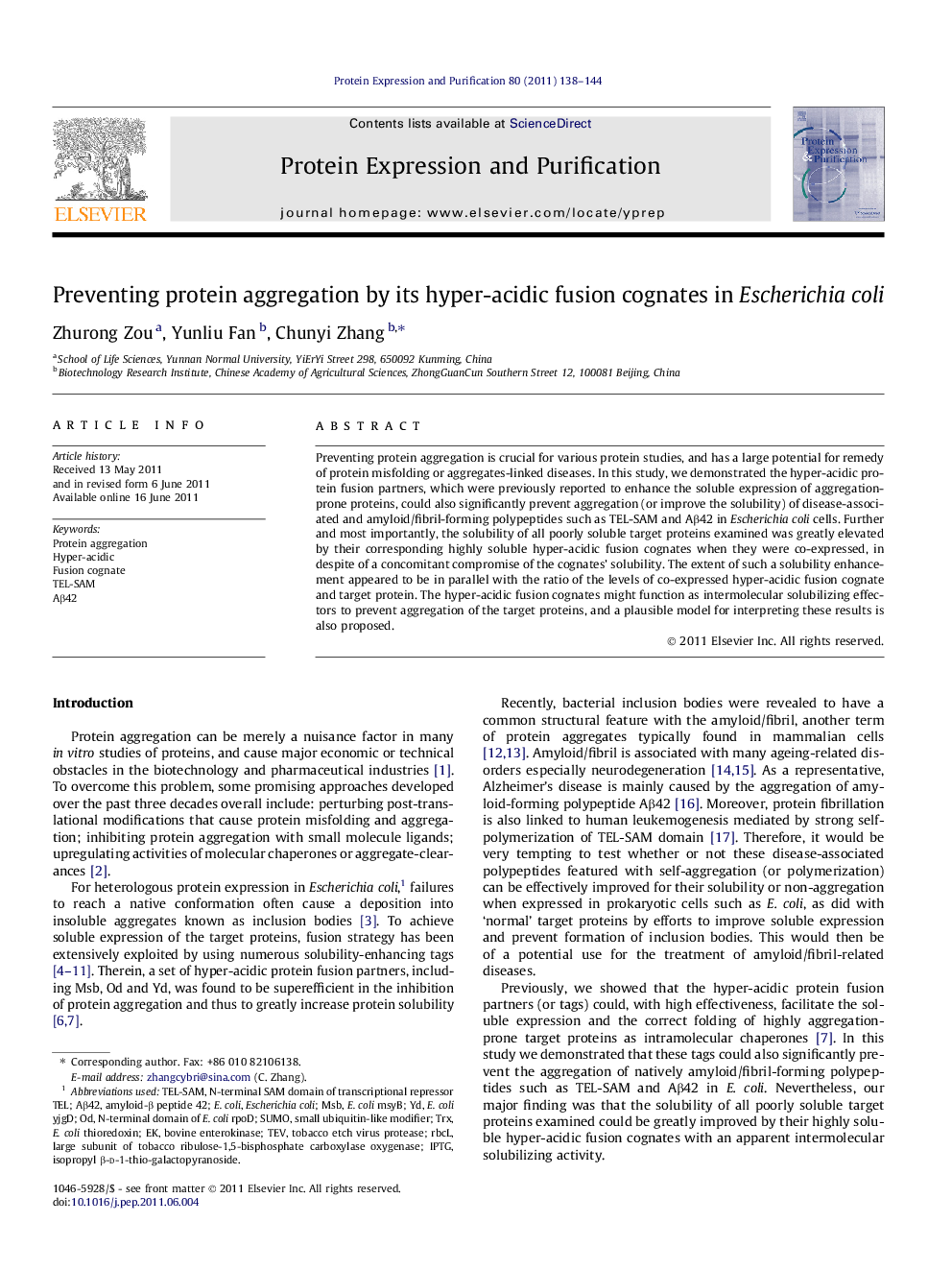| Article ID | Journal | Published Year | Pages | File Type |
|---|---|---|---|---|
| 2020768 | Protein Expression and Purification | 2011 | 7 Pages |
Preventing protein aggregation is crucial for various protein studies, and has a large potential for remedy of protein misfolding or aggregates-linked diseases. In this study, we demonstrated the hyper-acidic protein fusion partners, which were previously reported to enhance the soluble expression of aggregation-prone proteins, could also significantly prevent aggregation (or improve the solubility) of disease-associated and amyloid/fibril-forming polypeptides such as TEL-SAM and Aβ42 in Escherichia coli cells. Further and most importantly, the solubility of all poorly soluble target proteins examined was greatly elevated by their corresponding highly soluble hyper-acidic fusion cognates when they were co-expressed, in despite of a concomitant compromise of the cognates’ solubility. The extent of such a solubility enhancement appeared to be in parallel with the ratio of the levels of co-expressed hyper-acidic fusion cognate and target protein. The hyper-acidic fusion cognates might function as intermolecular solubilizing effectors to prevent aggregation of the target proteins, and a plausible model for interpreting these results is also proposed.
